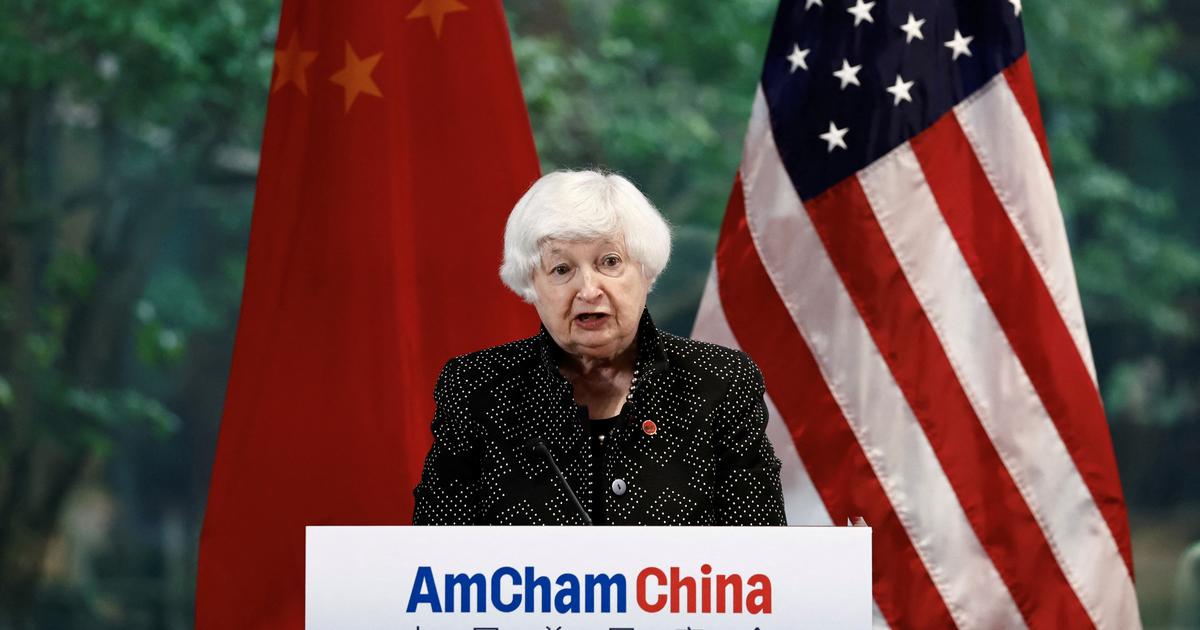Europe's companies worry about doing business in China.
The government is relentlessly enforcing new rules in the private sector and is increasingly promoting the isolation of the second largest economy.
Beijing / Munich - European companies in China fear that the government in Beijing will abandon its policy of international economic opening. There are "worrying signs" that China is increasingly turning inward, said the President of the European Chamber of Commerce in China (EUCCC), Jörg Wuttke, in Beijing on Thursday. Every year the chamber presents a position paper in which it calls for concrete solutions to problems that member companies in the People's Republic are facing. The tendency towards renationalization raises "considerable doubts about the future growth path of the country," said Wuttke. The problem is new, because until recently, despite all the difficulties, it was assumed that China would fundamentally open up further.
Now the EU Chamber referred to the new five-year plan adopted in March at the National People's Congress, which clearly stated the course "to reduce dependence on the rest of the world and ultimately to achieve a high degree of self-sufficiency". To the ears of many companies, that sounds like the dreaded decoupling. The Federation of German Industries (BDI) also expressed criticism of this development. "Beijing's focus on self-sufficiency and national security is clouding the prospects for European companies in the most important global growth market," said BDI Managing Director Joachim Lang.
China is likely to further reduce the role that foreign companies are currently playing in the country's economy - especially in the high-tech sectors, said Wuttke to contribute to China's future economic growth.
China: European companies have to adapt to the new national agenda
This is all the more annoying since many companies had once again achieved record sales and profit figures last year.
And that is unlikely to change much in the short term.
For the next few months, the outlook for European companies operating in China remained positive overall.
"At first glance everything seems to be fine in China," said Wuttke.
But from the BDI's point of view, the success of foreign companies in China depends more and more on how well they fit into Beijing's national agenda.
"There is growing pressure on companies to largely localize their operations in China," said Lang.
Medium-sized companies in particular could be hit hard by the increased costs in the future if, for example, they had to separate their data management and certain innovation processes in China from global business.
China: Fierce debate about future course in economic policy
But at second glance, a lot is unclear. A heated debate is raging over the question of where President Xi Jinping wants to steer China. He wants to achieve “general prosperity”. But critics warn of a "new cultural revolution". They fear the return of old times that would only have brought chaos. From the chamber's point of view, the leadership in Beijing is currently trying to strengthen control over the dynamic private sector in order to achieve political goals. At the same time, ways should possibly be found to “exclude foreign companies from the market and especially from strategic sectors”.
The growing regulation of the country's private sector is worrying, the EUCCC said.
With a major regulatory campaign, powerful tech companies such as Tencent or Alibaba, online trading and financial services, the gaming industry, driving services, the real estate sector and the entertainment and education industries have been more and more put on a leash in recent months.
New rules in the real estate sector are currently forcing the large private group Evergrande to its knees.
EU Chamber of Commerce in Beijing: Decoupling is also bad for China itself
The current course is not only bad for foreign companies that want to earn money in China, but also for the Chinese economy itself, stressed the EU Chamber. She always points out that China can also harm itself with its economic policy. According to the position paper, China's growth has already lagged slightly behind the targets over the past five years. A trend that could continue if Beijing chooses to forego bold market reforms and instead take a more isolated approach.
According to the EU Chamber, it is by no means certain that China will develop into a global economic superpower in any case.
Instead of isolating itself, China must "continue the spirit of the reform and opening plan begun in 1978", rebuild international bridges and work for greater integration into the world economy.
(ck / dpa)












